10 Great Movies to Watch with Your Family on Reformation Day
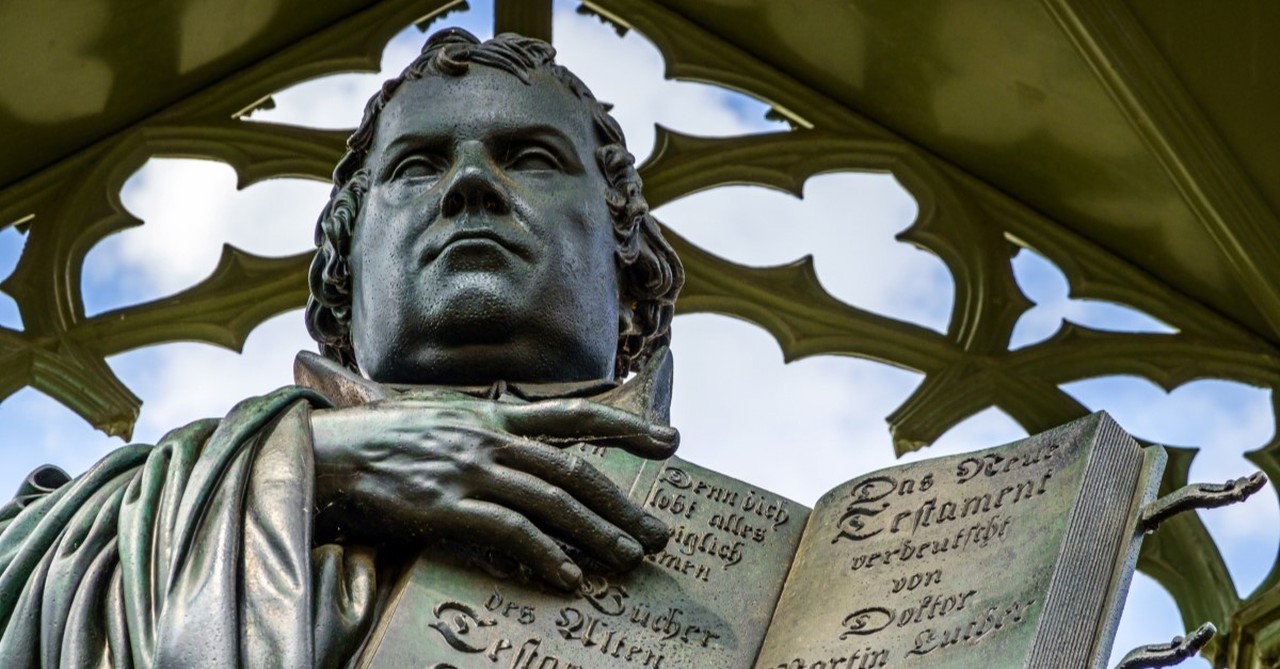
Reformation Day marks a historic event for Protestant Christians: the day that Martin Luther nailed his 95 theses to a church door in Wittenburg.
However, there was a lot more to the Reformation than just one day's events. There was Luther's spiritual journey that led him to call for reform. There were the predecessors who suggested ideas he built on. There were the many complicated consequences as different church leaders in different countries responded to his ideas.
These 10 movies depict the many sides of the Reformation, each one excellent viewing for Reformation Day.
Further Reading: Reformation Day's Meaning and Importance
Photo Credit: © Getty Images/FooTToo
1. Luther (2003)
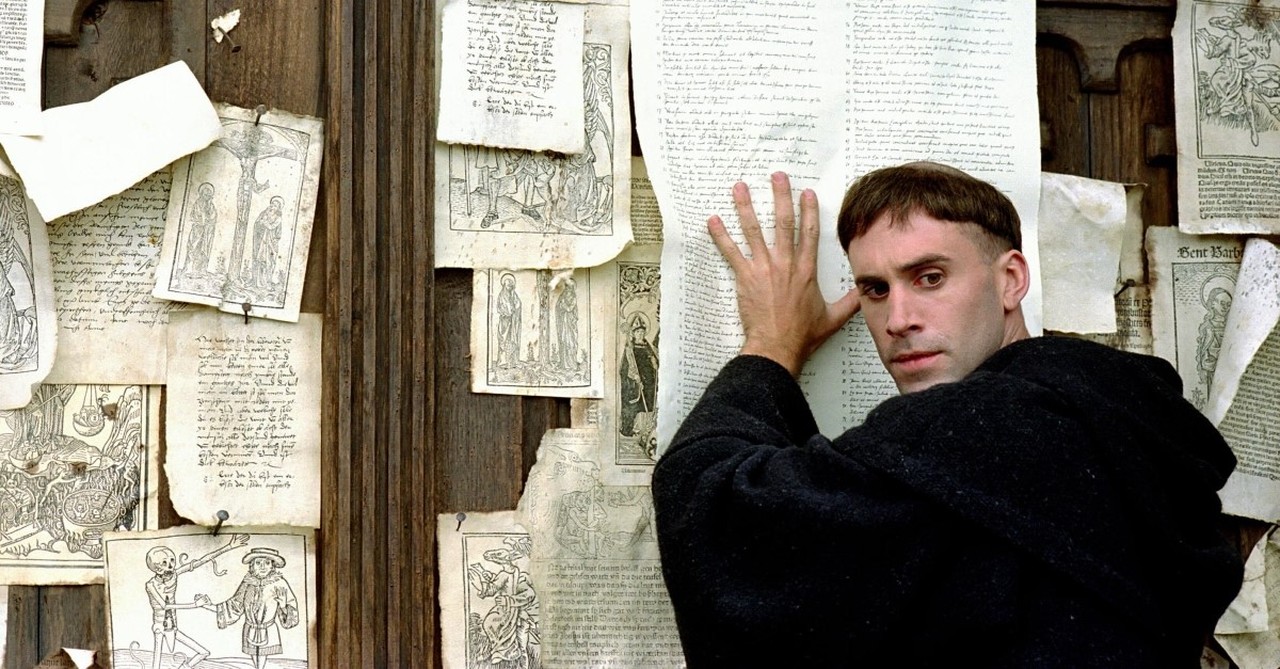
1. Luther (2003)
SLIDE 1 OF 10
Rating: PG-13
Martin Luther didn't realize what he was starting when he nailed a notice to the Wittenburg church door in 1517. What he started (or helped start, with many like-minded people working with him) was a revolution. His concerns about poor theology—church leaders claiming people could pay for God's favor by purchasing indulgences, how many pastors discussed works vs. grace, and other issues—created a shocking discussion. The debates about whether Luther and his associates were heretics and how church and state would change if his ideas threatened the system laid the groundwork for Protestant Christianity.
This 2003 biopic starts with the famous story of Luther's conversion in a thunderstorm, then follows him through his early spiritual struggles to his rising influence and then his famous clashes with authorities. It shows how Luther's ideas upset norms and how his yearning to serve God drove him into unexpected positions.
Further Reading: 10 Things to Know about Martin Luther and His 95 Theses
Photo Credit: R.S. Entertainment via IMDb
2 A Man for All Seasons (1966)
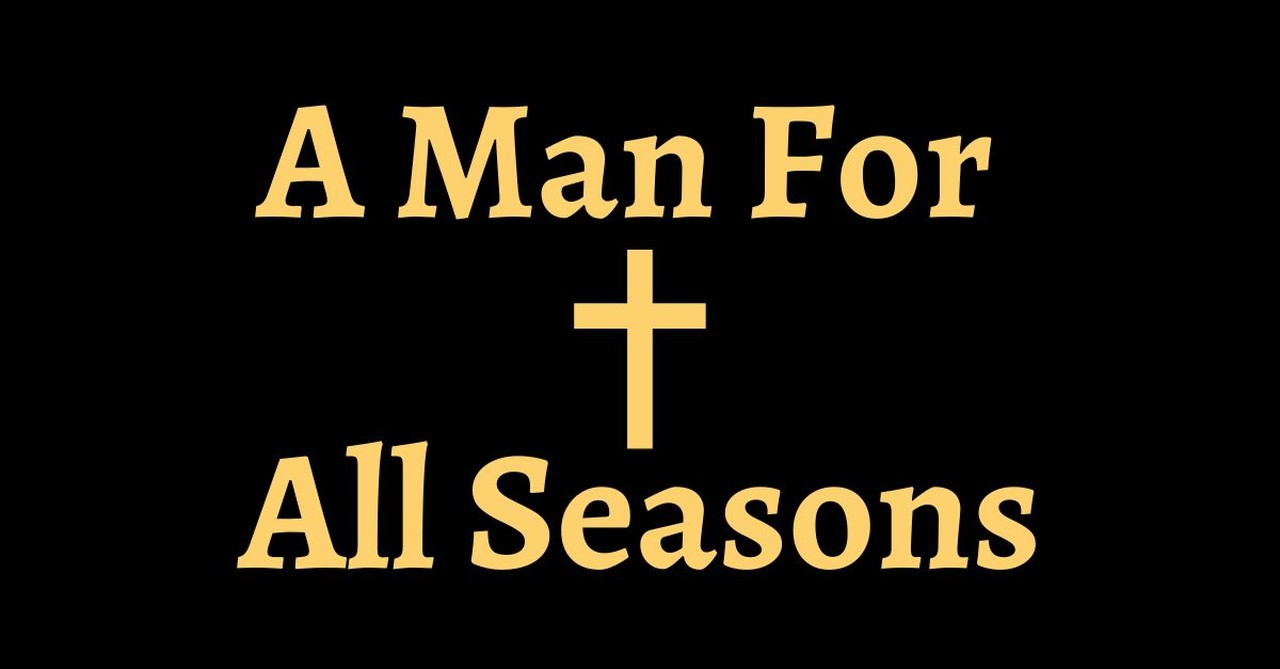
2 A Man for All Seasons (1966)
SLIDE 2 OF 10
Rating: G
The Reformation produced some great critiques of Catholic leaders abusing their power, but was a complicated story. Sometimes, the people fighting against Catholic doctrine were more interested in the power they could acquire than in producing better doctrine. A Man for All Seasons examines one of the latter, more complicated, stories: Thomas More, a Catholic nobleman stuck in a hard place. His king, Henry VII, wants to split from the Catholic Church so he can divorce his wife and marry another woman. Henry claims he has moral reasons for his choice but seems more interested in finding a wife who can produce children than whether the Bible sanctions divorce. More carefully considers his options, knowing that opposing his king's wishes may cost him his life.
A frequent choice on lists of the greatest Christian films ever made, A Man for All Seasons tells its dramatic story without giving black-and-white answers about the Reformation. It makes it clear that the period changed Western Christianity but wrestles with its complications (people who wanted change for good reasons, people who had less than honorable reasons for seeking change). A great movie for showing the good and the bad of this historic period.
Further Reading: 10 Inspiring Movies about Christian Martyrs
Photo Credit: fan poster by G. Connor Salter
3. The Radicals (1990)
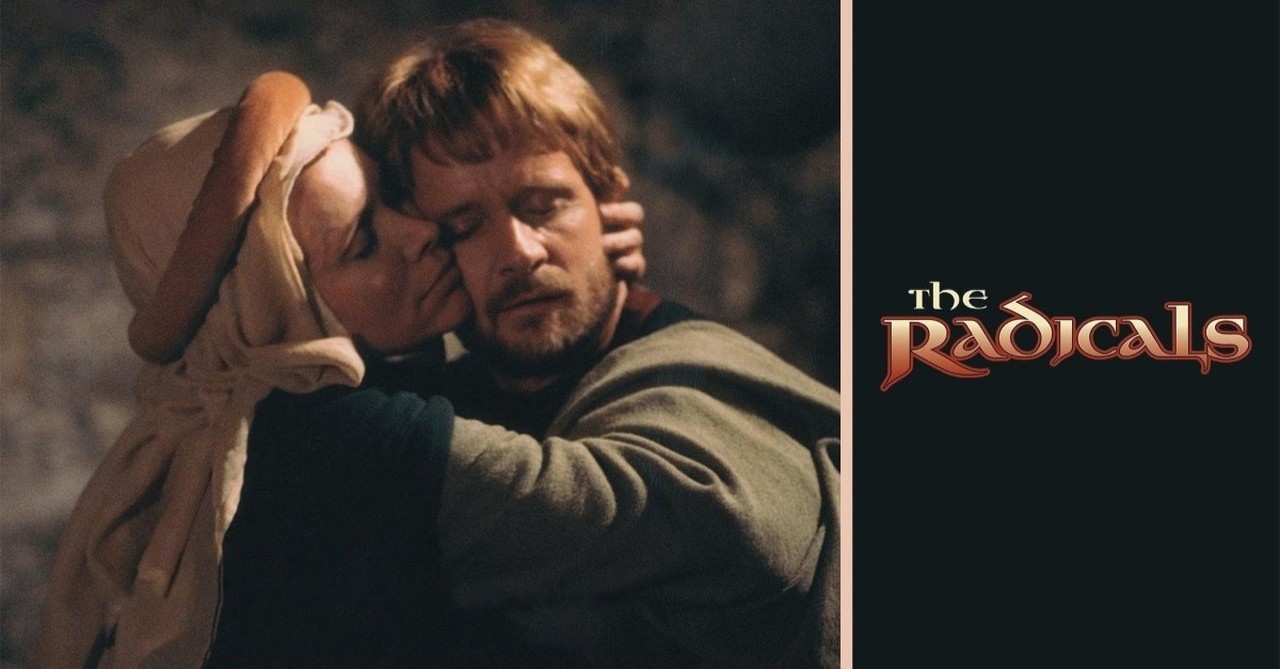
3. The Radicals (1990)
SLIDE 3 OF 10
Rating: Not Rated
American conversations about the Reformation often focus on Luther's followers and others (John Wycliffe, John Wesley) whose ideas became famous denominations in America and Western Europe. However, other strains of Reformation thought struggled more for acceptance. The Anabaptists took a stricter stance on baptism than many Lutherans—they believed that only people who professed belief in Christ should be baptized. Their stance, and the fact many of them believed in practicing nonviolence, led to them often getting persecuted by Catholics and even other Protestants. Their ideas continue in modern denominations like the Amish and Mennonite churches.
The Radicals focuses on two notable Anabaptists: former monk Michael Sattler and his wife, Margaretha. The movie shows them meeting, falling in love, and their growing belief in nonviolence and other factors leading them to choose the Anabaptists instead of Luther's movement. Martin becomes a key contributor to the definitive statement of Anabaptist beliefs, the Schleitheim Confession, but soon pays a price for his beliefs. In 1527, the couple is arrested and executed for sedition along with other Anabaptists.
An important look at two critical figures in a neglected side of the Reformation.
Further Reading: Who Are Anabaptists? Learn the Origins and History of Anabaptism
Photo Credit: Sibro Films via Rotten Tomatoes
4. Katharina Luther (2017)
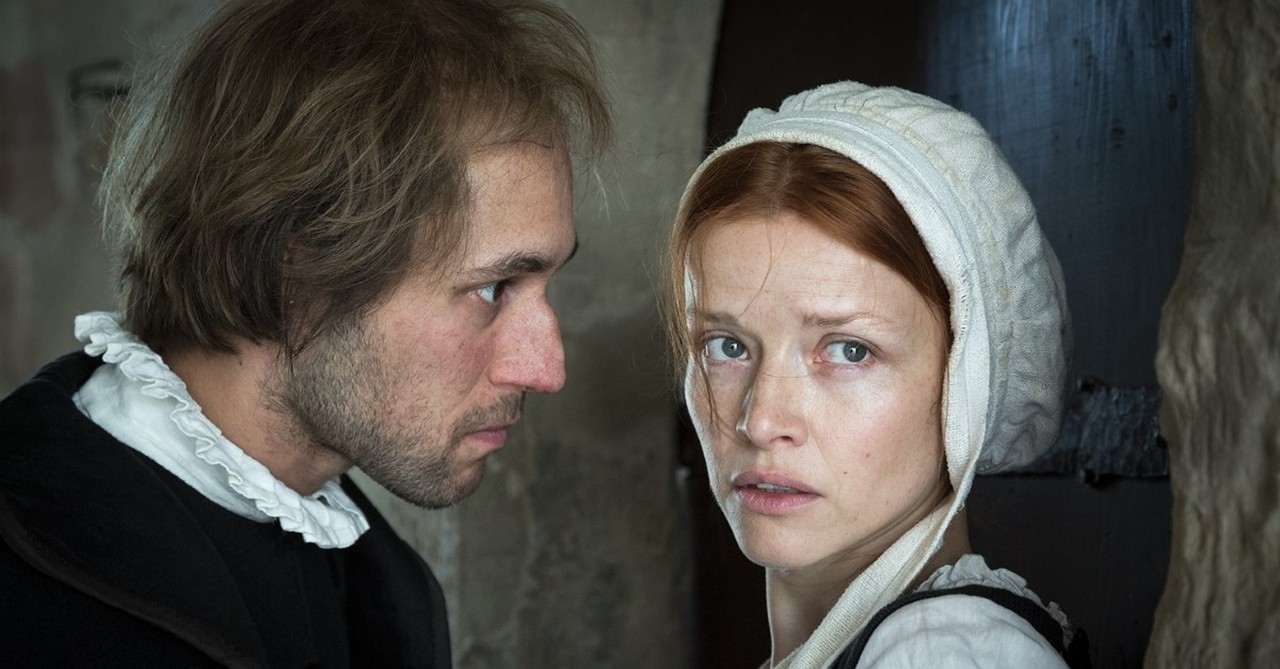
4. Katharina Luther (2017)
SLIDE 4 OF 10
Rating: Not Rated
The women involved in the Reformation often get forgotten, perhaps because many didn't have highly public roles. However, even the hardest-working leaders struggle when they don't have someone supporting and advising them. Whether or not their spouses are publicly recognized, their contributions help create the people we know. This movie looks at the under-discussed wife of Martin Luther. Katharina von Bora began her life as a Benedictine nun but left her order in 1523. Martin Luther helped her and other nuns escape their convent in fish barrels, then strived to ensure the former nuns found jobs or found spouses who could provide homes for them. Two years after meeting Katharina, they married. She went on to give input into many of Luther's writings and decisions, and they raised 10 children (six biological children and four orphans).
This 2017 biopic starts in 1522, when Katharina is beginning to contemplate the Reformation's ideas and how they will affect her life. It follows her growing dissatisfaction with the convent, her meeting with Martin, and their life together. An engaging story of an important, often unsung contributor to the Reformation.
Further Reading: Five Famous Christian Leaders' Wives You Should Know
Photo Credit: Südwestrundfunk via IMDb
5. The Mill and the Cross (2011)
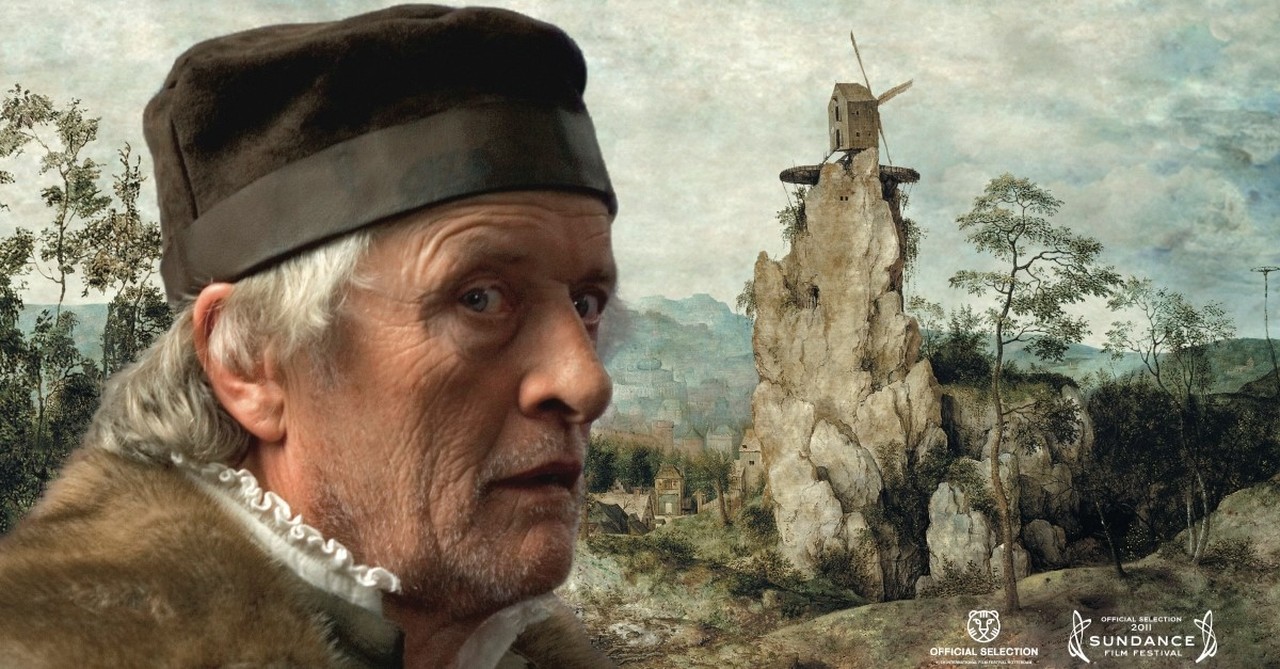
5. The Mill and the Cross (2011)
SLIDE 5 OF 10
Rating: Not Rated
The Reformation didn't just change what churches taught or what theologians wrote. It impacted what painters like Peter Bruegel the Elder depicted in their art. The Mill and the Cross shows Bruegel making his famous painting The Procession to Calvary, a picture of a Bible scene where Brueugel adds modern details (characters drawn like people from his native Flanders) to make the story of Jesus' crucifixion accessible to his audience. The Reformation led to many Protestants suffering persecution in Flanders, and The Mill and the Cross considers how the period may have influenced Bruegel.
An earthy but important look at the Reformation's aftermath, The Mill and the Cross goes beyond just showing the period. By discussing Bruegel's painting and comparing some figures in the film to figures in the painting, it makes applies the story of Christ's Calvary journey to the tale. It provides a compelling look at how Christ's suffering provided comfort and inspiration to suffering Christians in the Reformation.
Further Reading: What Is Christian Art and Can It Be Better?
Photo Credit: Kino Lorber via IMDb
6. The Reformer: Zwingli: A Life's Portrait
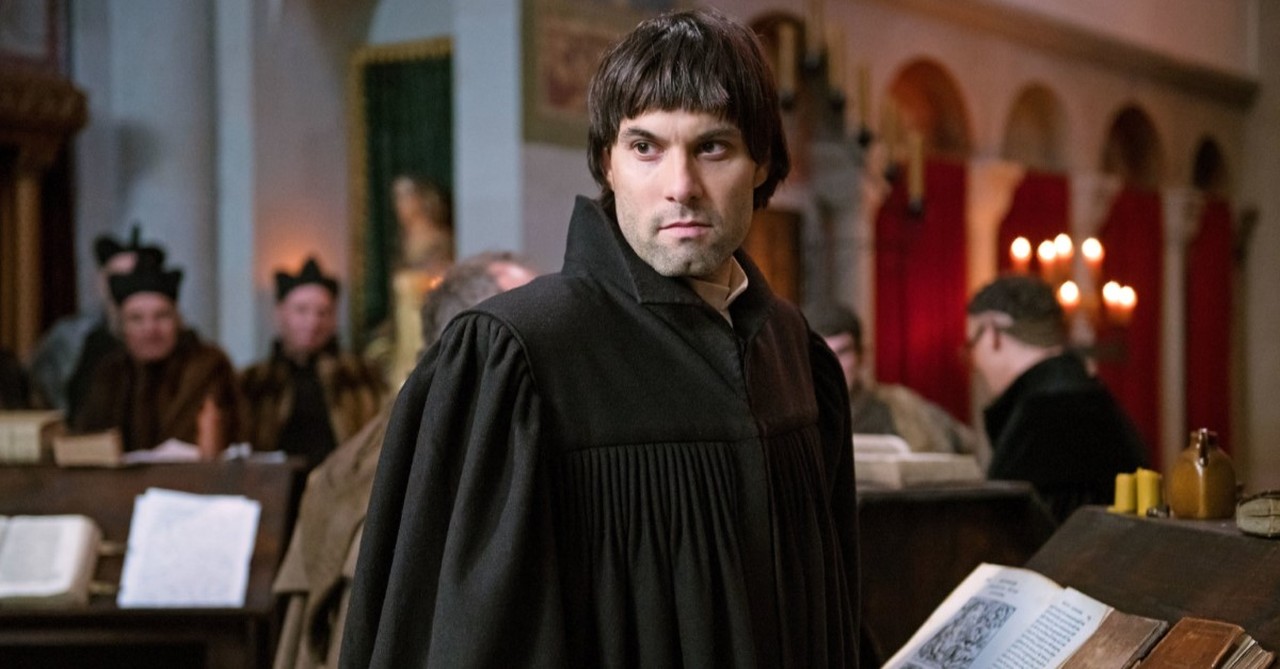
6. The Reformer: Zwingli: A Life's Portrait
SLIDE 6 OF 10
Rating: Not Rated
While Luther's Reformation in Germany was a critical moment in the Reformation, his contemporary Ulrich Zwingli had a big impact in Switzerland. After becoming the pastor of Zurich's church in 1519, Zwingli began criticizing corrupt clergy and arguing against Catholic traditions like Lenten fasting. He also fell in love with widow Anna Reinhart,, forcing him to reassess his views about whether priests must be celibate. Zwingli's calls for reform eventually made Zurich a Protestant city, though Zwingli's troubles didn't end there. Clashes with proteges like Felix Manz (who joined the Anabaptists) created new problems. Catholics and Protestants continued violently opposing each other, and Zwingli ultimately died in a battle in 1531. While he may not have had Luther's peaceful death by old age or Sattler's heroic martyrdom, Zwingli's life was not all tragedy. His teachings made important contributions to Protestant theology.
This 2019 movie opens with Zwingli's arrival in Zurich, followed not long afterward by meeting Reinhart. By highlighting this romance, the movie shows how Zwingli's path to reform was not just an intellectual matter. It was a passionate journey informed by his struggle to reconcile his calling with his newfound love.
Further Reading: What Should Christians Know about Swiss Reformer Ulrich Zwingli?
Photo Credit: C-Films AG via IMDb
7. John Hus (1977)
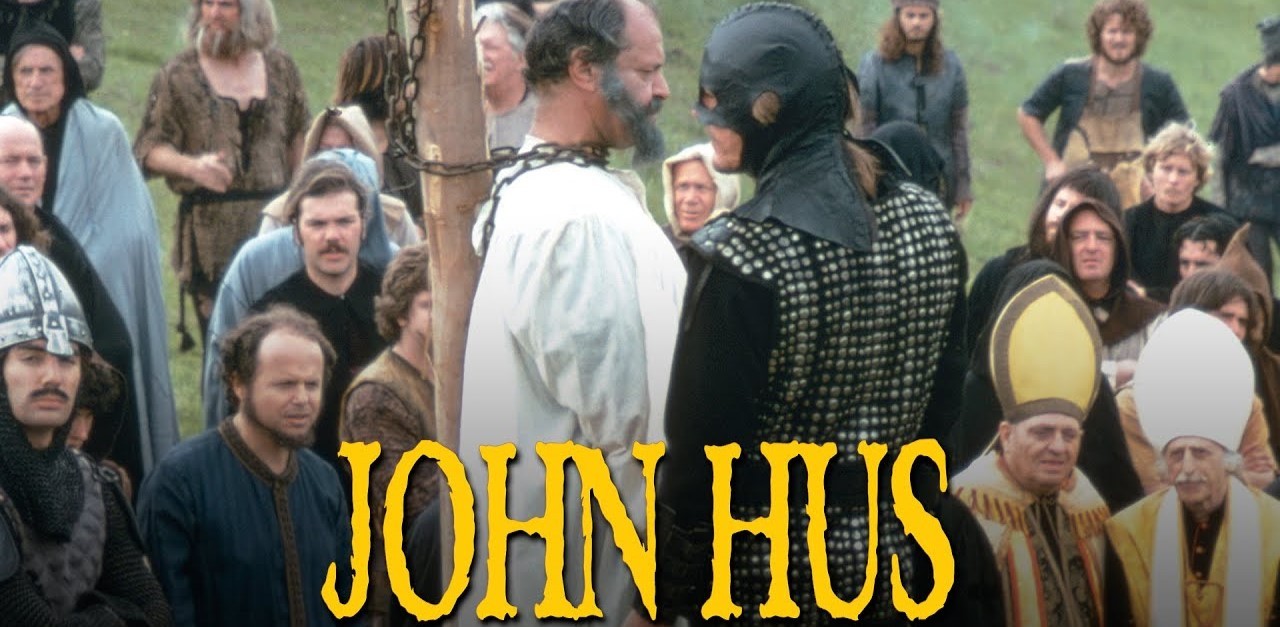
7. John Hus (1977)
SLIDE 7 OF 10
Rating: Not Rated
Conversations about the Reformation often overlook the fact that Luther and his colleagues weren't the first to raise these concerns. John (sometimes spelled Jan) Hus lived about a century earlier (born around 1370 and died on July 6, 1415). John Wycliffe preceded him by a few years, and Hus not only helped spread Wycliffe's ideas in Bohemia, but raised concerns that many later Reformers would raise (criticizing the sale of indulgences and pointing out power abuses rising from traditions not based on Scripture). Hus was burned at the stake for his controversial teachings, but his ideas didn't disappear. The Hussites became a major early Protestant movement in the area now known as the Czech Republic.
This 1977 film may feel dated by today's standards, but it gives a short and clear overview of Hus' life—from his early academic career to his debates with church leaders to his trial and death. Its simple presentation makes it easy for children or adults to watch, making it a great educational opportunity for Reformation Day.
Further Reading: The Tragic Trial and Death of Jan Hus
Photo Credit: Faith for Today via IMDb
8. John Wycliffe: Morningstar (2022)
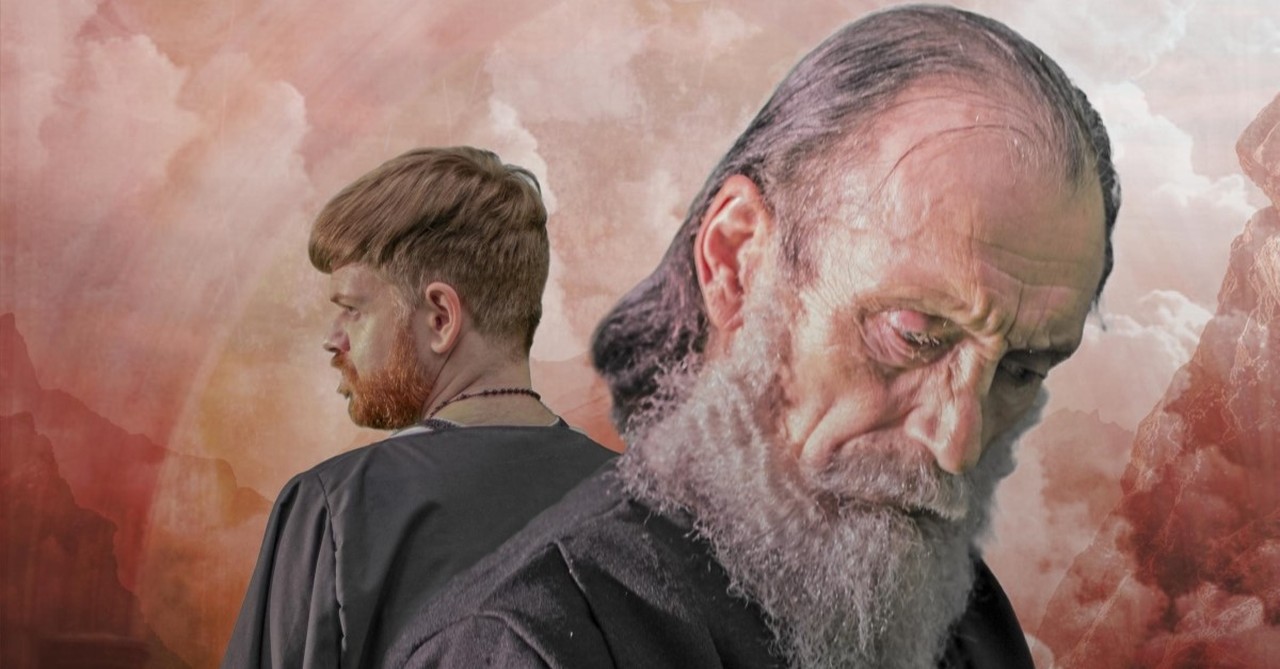
8. John Wycliffe: Morningstar (2022)
SLIDE 8 OF 10
Rating: Not Rated
Before Luther, before Hus, there was John Wycliffe. An English scholar, Wycliffe began his career firmly in the Catholic school of Scholasticism. Over time, he became critical of Catholic teaching, finding monastic orders corrupt and criticizing Catholic doctrines that weren't directly based on Scripture. In 1381, his criticisms of corrupt priests had helped start a rebellion, the Peasant's Revolt. Authorities discouraged his project to translate Scriptures into English, and his death by a stroke in 1384 seemed to be the end of their concerns. Instead, Wycliffe's teachings spread through followers and began a foundation for later reformers to build on. He is remembered today as the "morning star" of the Reformation.
This 2022 docudrama features director Murdo Macleod taking viewers through historical locations, splicing in dramatic scenes from Wycliffe's life. The story emphasizes how Wycliffe's times (the Black Death occurred when he was in his twenties) contributed to the instability that made his ideas so polarizing. A powerful look at a religious pioneer.
Further Reading: John Wycliffe's Life and Work
Photo Credit: Trinity Global via IMDb
9. The Most Dangerous Man in Tudor England (2013)
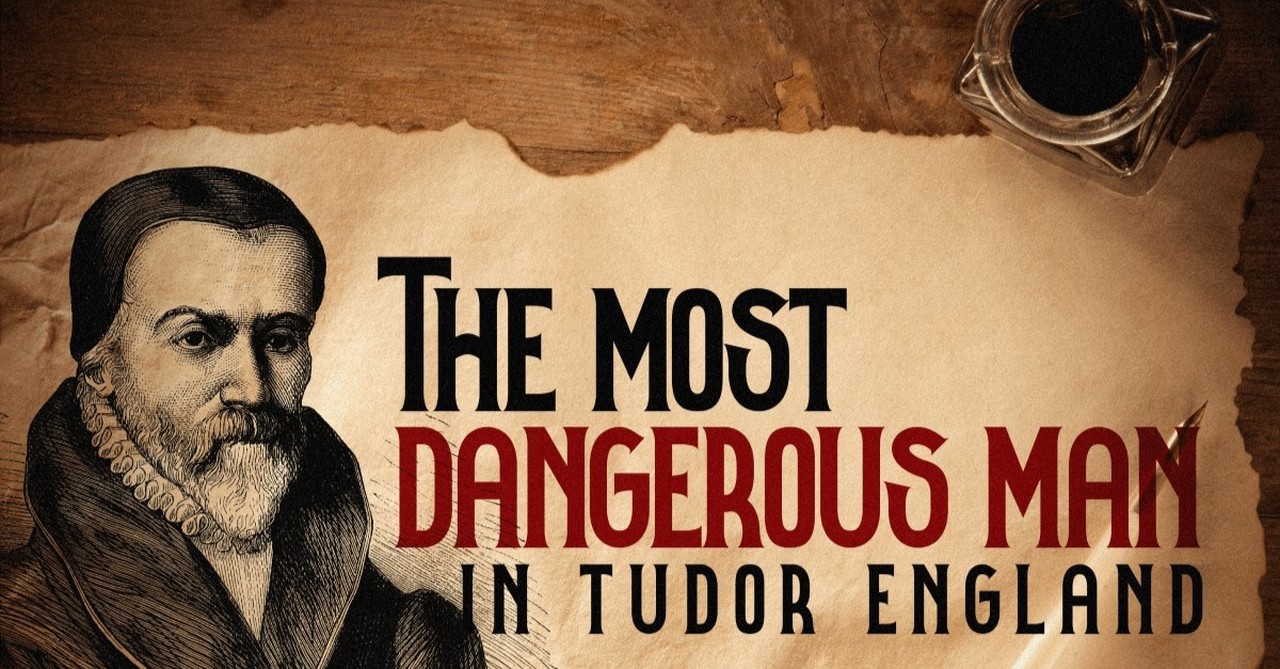
9. The Most Dangerous Man in Tudor England (2013)
SLIDE 9 OF 10
Rating: Not Rated
A contemporary of Luther, William Tyndale may be the single most famous Bible translator in history. A key Reformation debate was whether everyday people could have access to the Bible. Catholic leaders maintained that it should only be translated into Latin, to avoid chaos arising from many people giving many interpretations of Scripture. Many Protestants argued that the Latin-only system created too much room for abuse and that everyday people had the necessary substance to interpret the Bible for themselves. Tyndale took it upon himself to translate the Bible from the original languages into English. He was executed in 1536 before he could finish and publish his translation, but his work became a key part of the Geneva Bible and influenced the later King James Bible.
This 2013 documentary presented by Melvyn Bragg provides a compact overview of how Tyndale’s ideas were seen as a threat to church and state, and yet how his ideas continued through later state-approved Bible translations.
Further Reading: The Life and Feats of William Tyndale
Photo Credit: BBC Select
10. Calvin, Zwingli, and Brother Klaus (2017)
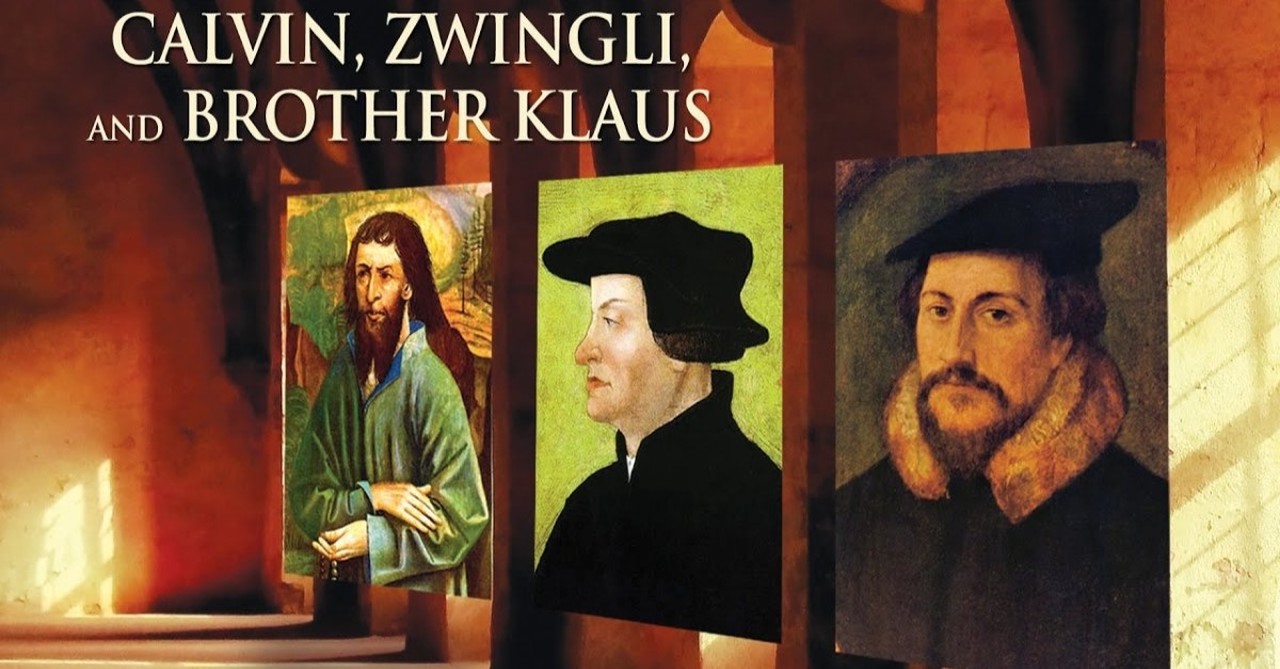
10. Calvin, Zwingli, and Brother Klaus (2017)
SLIDE 10 OF 10
Rating: 13+ (TV)
Recommended for Kids: Maybe
For whatever reason, there are fewer documentaries about John Calvin than about the other famous reformers. Like Luther, Calvin began by calling for reforming the Catholic church but found his ideas drew violent responses. Fleeing his native France, Calvin settled in Basel, Switzerland, in 1535. In exile, he wrote his groundbreaking Institutes, one of the most acclaimed theological works of all time.
This 2017 docudrama compares and contrasts Calvin's story with two other key reformers in Switzerland. While Calvin worked in Basel, Zwingli accomplished his reforms in Zurich. Nicholas von Flüe, also known as Brother Klaus, became a hermit in the Flüeli-Ranft region, with many seeking his advice on civic and spiritual matters. Klaus's reputation for being a mystic and wise teacher was so great that Catholics and Protestants respected him (today, he is the patron saint of Switzerland).
A fascinating look at three different Reformation figures which shows the movement's complexity.
Further Reading: 10 Things You Need to Know about John Calvin
Photo Credit: Vision Video

Originally published October 25, 2023.









